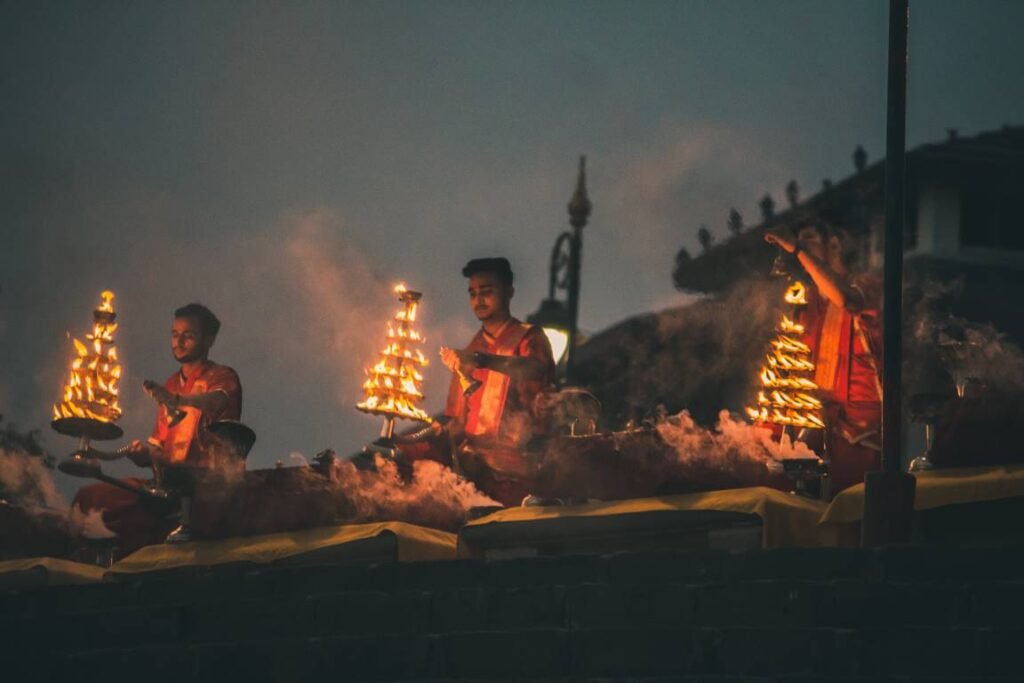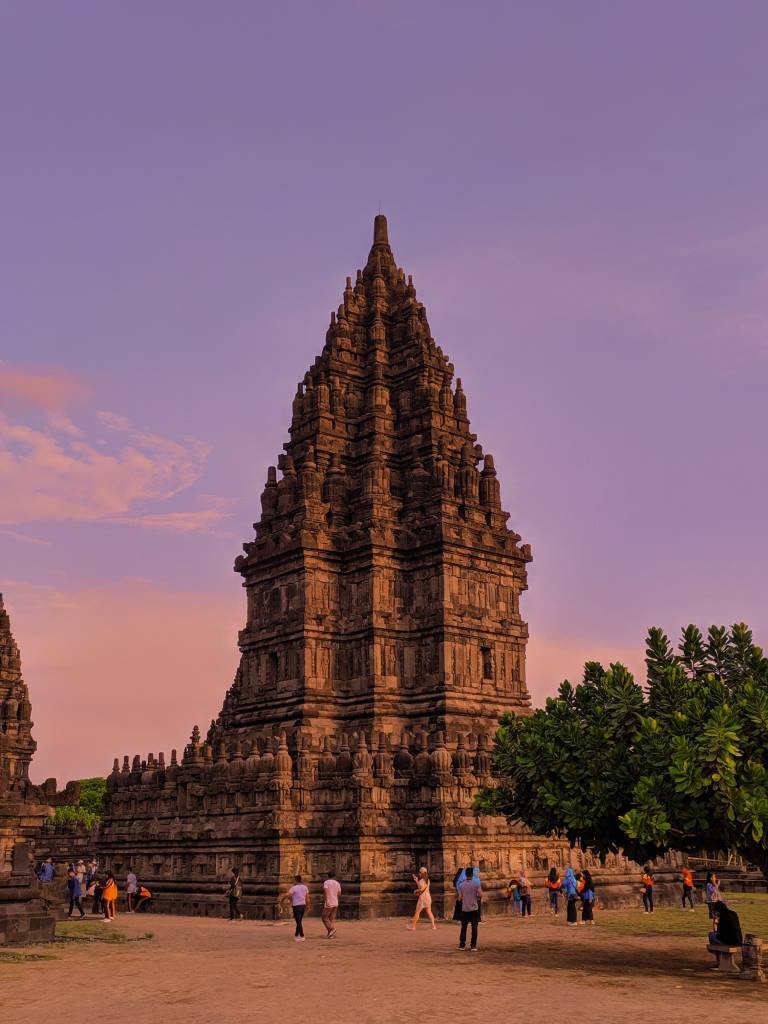Why ISKCON Hates Shiva: Unraveling the Truth

In the vast realm of Hinduism, various deities hold a significant place in the hearts and minds of devotees. Among them, Lord Shiva, the powerful and enigmatic god, has captured the imagination of millions. However, within the folds of Hinduism, there exists a group called ISKCON, the International Society for Krishna Consciousness, which seemingly holds disdain towards Shiva. This article aims to explore the reasons behind the question, “Why does ISKCON hate Shiva?” We will delve into the historical context, theological perspectives, and cultural differences that may shed light on this intriguing topic.
The Significance of Lord Shiva
Before we dive deeper into the question, it is important to understand the significance of Lord Shiva in Hindu mythology and his devoted following. Lord Shiva is regarded as one of the principal deities in the Hindu pantheon, known for his role as the destroyer and transformer. He embodies cosmic powers, representing both creation and dissolution. Devotees of Shiva revere him as the ultimate symbol of detachment, inner peace, and spiritual liberation.
The ISKCON Perspective

ISKCON, a Vaishnava Hindu religious organization founded in 1966 by A.C. Bhaktivedanta Swami Prabhupada, primarily focuses on the worship of Lord Krishna. According to ISKCON’s teachings, Krishna is considered the Supreme Personality of Godhead, the ultimate and complete incarnation of the divine. This devotion to Krishna shapes ISKCON’s theological views and practices, which may lead to differing opinions about other deities, including Shiva.
Historical Context: Rivalries in Hindu Mythology
To understand the potential discord between ISKCON and Lord Shiva, we must explore the historical context of Hindu mythology. Mythological tales often depict rivalries and conflicts between different deities, reflecting the diverse beliefs and regional variations within Hinduism. Such rivalries can sometimes influence the perceptions and attitudes of religious organizations like ISKCON.
The Churning of the Ocean: A Source of Discord
One prominent mythological event, the churning of the ocean (Samudra Manthan), offers insight into a possible source of discord between ISKCON and Shiva. During this cosmic event, both Shiva and Vishnu play significant roles. However, interpretations of this event can vary, and conflicting narratives have emerged over time, potentially leading to differences in opinions held by various sects and organizations.
Theological Perspectives on Shiva’s Worship
Monotheism vs. Polytheism: A Fundamental Divide
One fundamental aspect to consider is the theological divide between monotheistic and polytheistic beliefs within Hinduism. ISKCON’s emphasis on worshiping a single supreme deity, Lord Krishna, may lead to a more exclusive approach to religious practice. Consequently, this could result in differing opinions and a reduced significance placed on the worship of other deities, including Lord Shiva.
Vaishnava Theology: The Predominance of Krishna
Within the framework of Vaishnava theology, which ISKCON adheres to, Lord Krishna is considered the ultimate form of God, encompassing all divine aspects. From this perspective, the worship of Krishna is believed to provide complete spiritual fulfillment. This emphasis on Krishna’s all-encompassing divinity could contribute to a diminished focus on other deities such as Shiva.

Cultural Differences and Regional Variations
Another factor that may contribute to the apparent tension between ISKCON and Lord Shiva lies in the diverse cultural backgrounds and regional variations within Hinduism. India, the birthplace of Hinduism, boasts a rich tapestry of traditions, rituals, and customs that
vary across different regions. The worship and reverence for deities can differ based on these cultural nuances, leading to contrasting perspectives on Lord Shiva.
Regional Preferences and Sectarian Differences
In certain regions of India, specific deities hold more prominence and are central to the religious practices of the local population. This regional preference can be attributed to historical and cultural factors that have shaped the religious landscape of those areas. Consequently, ISKCON’s emphasis on Krishna worship, combined with regional biases, might explain their relatively limited focus on Lord Shiva.
Sectarian Conflicts and Competition
Throughout history, Hinduism has witnessed sectarian conflicts and competition between different religious groups. These conflicts sometimes manifest as debates and disagreements over theological doctrines and practices. While ISKCON promotes a specific theological perspective centered around Krishna, clashes with other sects, including those with a strong affiliation to Lord Shiva, could contribute to a sense of animosity or disregard.
Why Does ISKCON Hate Shiva?
While the question of why ISKCON hates Shiva may seem straightforward, it is important to note that the word “hate” might be too strong of a term. Instead of outright animosity, it is more accurate to say that ISKCON places less emphasis on the worship and glorification of Lord Shiva. This difference in focus stems from theological perspectives, cultural variations, and regional preferences within Hinduism.
It is essential to approach this topic with an open mind, acknowledging the diversity of beliefs and practices within Hinduism. Rather than framing the issue as one of hatred, it is more constructive to view it as a matter of differing theological viewpoints and cultural influences.
FAQs
1. Does ISKCON consider Shiva as a false deity?
No, ISKCON does not categorize Lord Shiva as a false deity. While their theological focus lies primarily on the worship of Lord Krishna, they acknowledge the existence and significance of other deities within Hinduism, including Lord Shiva.
2. Can ISKCON members worship Shiva?
Yes, ISKCON members have the freedom to worship Lord Shiva or any other deity within the Hindu pantheon. While ISKCON emphasizes devotion to Lord Krishna, individual members are free to engage in personal spiritual practices and express reverence for other deities as per their personal beliefs.
3. Are there any scriptures in ISKCON that criticize Shiva?
ISKCON’s primary scriptural text is the Bhagavad Gita, which focuses on the teachings of Lord Krishna. While the Bhagavad Gita does not criticize Lord Shiva, it places Krishna as the Supreme Personality of Godhead. It is essential to understand that the emphasis on Krishna in ISKCON’s scriptures does not necessarily entail criticism of other deities.
4. Do ISKCON and Shaivites have conflicts?
Conflicts between ISKCON and Shaivites, followers of Lord Shiva, are not widespread. While differences in theological perspectives and practices may exist, it is crucial to foster mutual respect and understanding among different sects within Hinduism.
5. Can ISKCON members visit Shiva temples?
Yes, ISKCON members can visit Shiva temples if they choose to do so. Visiting temples is a personal choice and varies among individuals within ISKCON based on their spiritual inclinations and preferences.
6. Is there any scope for reconciliation between ISKCON and followers of Shiva?
Yes, there is always scope for reconciliation and understanding among different sects within Hinduism. It is important to foster dialogue, respect, and acceptance of diverse beliefs and practices. By promoting interfaith dialogue, education, and embracing the common values shared by all devotees, it is possible to bridge the gaps and foster unity within the broader Hindu community.
Conclusion
In conclusion, the question of why ISKCON appears to have less emphasis on the worship of Lord Shiva can be attributed to a combination of theological perspectives, cultural variations, and regional preferences within Hinduism. While ISKCON’s focus on Krishna worship shapes their practices and teachings, it does not necessarily imply hatred or animosity towards Lord Shiva. It is essential to approach this topic with an open mind, acknowledging the diversity of beliefs and practices within Hinduism. By fostering mutual respect, understanding, and dialogue, we can promote unity and harmony among different sects and devotees.
Also Read 10 Short girl problems that’re too cute